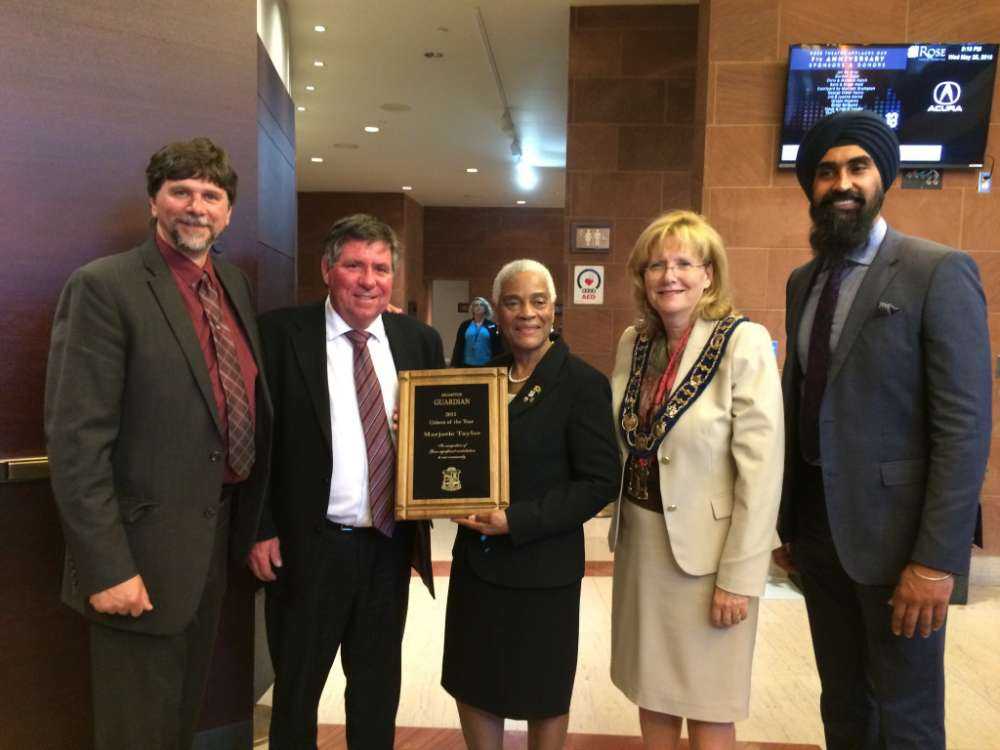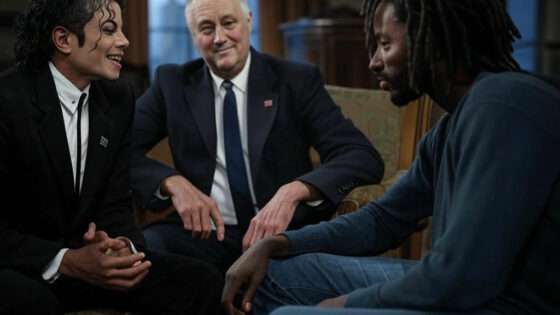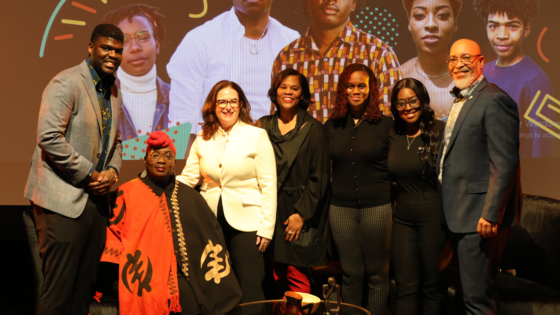on
BY ALYSSA MAHADEO
Every April, The City of Brampton and members of various councils in the city are proud to offer a recognition program for outstanding citizens in our community who have made achievements within the past year. Since 2008 the city has hosted these awards nominating the citizens of Brampton who have worked hard to help progress the development of the city, voluntarily doing their part to give back or represent Brampton in fierce competition.
The awards were presented to citizens of Brampton for excellence in sports achievement, arts, inspirational and long-term service. This year’s awards ceremony was hosted at the Rose Theatre in Brampton with a warm reception including various cocktails and finger foods.
Those in attendance included Brampton Mayor Linda Jeffrey, members of city council, the Peel Regional Police and other representatives of well-known community organizations.
The evening commenced with an introduction of the members of Brampton City Council in attendance, following recognition of those members of the Citizens Awards Selection Committee that included: City Councilor Gurpreet Dhillon, Regional Councilor Gael Miles, Regional Councilor Eleanie Moore, President of Cobra Swim Club Louise Barton, Chief of Brampton Fire and Emergency Services, President Brampton Minor Baseball Inc. Frank Fascia, Editor-in-Chief of the Brampton Guardian Patricia Lonergan, Sgt. Fortunato Manvati from the Peel Regional Police, and Myrna Montrichard Adams representative of the Brampton Seniors Council.
The first award for the evening presented by the Brampton Guardian for Athlete of the Year was the Ken Giles Award presented to Kadeisha Buchanan. Since its conception in 2002 the Ken Giles Award has gone to a number of outstanding athletes. It was to honor Brampton’s amateur athlete of the year and was named after the newspaper’s retired sports editor.
Soccer player Kadeisha Buchanan received the award for a second consecutive year for her impressive accomplishments that surpasses her accomplishments of the previous year. After winning Soccer Canada’s senior female player of the year, her performance at the 2015 Women’s World Cup was brilliant and also earned her the Young Player Award presented to a top player born after Jan 1st, 1995. At only twenty years old, she is on Canada’s Olympic team in Rio de Janeiro. She was unable to attend the citizen awards because she is in training camp in B.C. and is also headed into her senior year at West Virginia University.
Throughout the evening awards were presented to citizens of Brampton involved in Football Playing for the Brampton Bulldogs, Track and Field, Hockey, Figure Skating, Gymnastics, Speed Skating, Lacrosse, Softball and the Special Olympics.
The Brampton Citizen Awards for Long Term Service was presented to members of the community who have served voluntarily ten years or more. The Long Term Service Award identifies dedicated volunteers whose efforts have made a significant impact towards the development and advancement of recreational sports, the arts and community social services.
This years Long Term Service Awards went to James Sullivan for his work as a volunteer at Lester B. Pearson Catholic Elementary School for twenty years, Scouts Canada – Margaret Northrup, and Steven Wilson and the Inspirational Award went to Justin Baker spearhead of the Gift and Give Back Program originally forecasted to raise five thousand pounds of food for the salvation army, but in the end he doubled his initial goal and raised seventy five thousand pounds of food for those in need.
Last but not least the final award for the night, presented by the Brampton Guardian for outstanding volunteerism and Citizen of the Year 2015 went to a distinguished senior citizen of Brampton, well known by the Caribbean community – Marjorie Taylor.
For most of her life Marjorie has been driven, by her faith and dedication to service. Always a willing volunteer whether it was lending an extra pair of hands at her church, or at the United Achievers’ Club non-profit organization, Marjorie serves the community with a devotion and sense of duty ingrained in her philosophy to live every day as through it were her last.
Marjorie has been a resident of Brampton for over three decades and after retiring in 2007 volunteerism became her full time calling, dedicated to full-time service to the community. Over the past decade and more, Marjorie has served as the president of the Kiwanis Club of Brampton and UAC. She is involved in several fundraisers such as the Celebrity Chef-Men Who Cook, scholarship programs for students and many other causes that are vital to continuing growth in the community.
For more information or to nominate someone you believe is deserving of this recognition visit Brampton.ca/citizenawards. Annual deadline is November 30th. Congratulations to the Citizen Award winners of 2015!
Stay in the loop with exclusive news, stories, and insights—delivered straight to your inbox. No fluff, just real content that matters. Sign up today!












